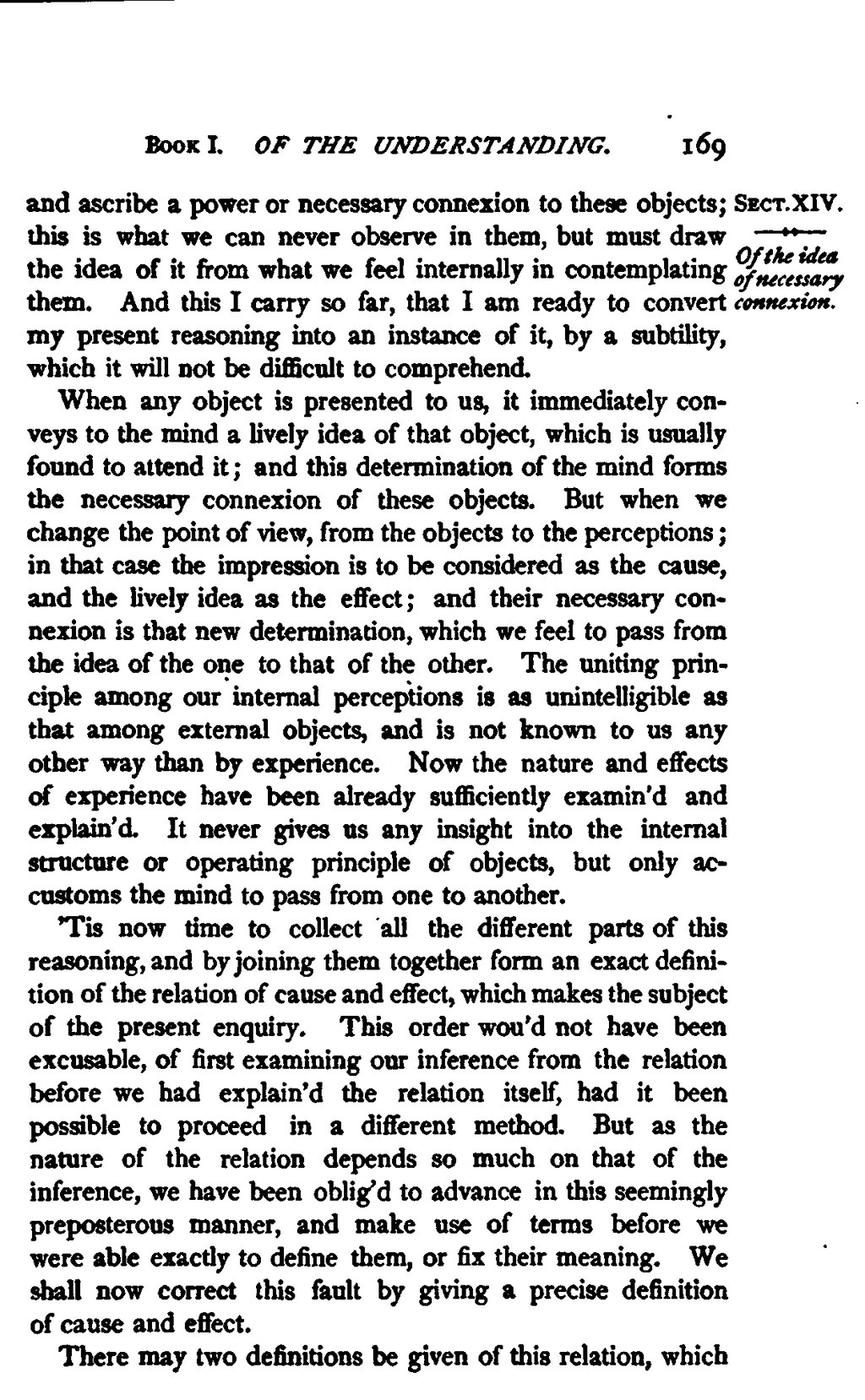and ascribe a power or necessary connexion to these objects; this is what we can never observe in them, but must draw the idea of it from what we feel internally in contemplating them. And this I carry so far, that I am ready to convert my present reasoning into an instance of it, by a subtility, which it will not be difficult to comprehend.
When any object is presented to us, it immediately conveys to the mind a lively idea of that object, which is usually found to attend it; and this determination of the mind forms the necessary connexion of these objects. But when we change the point of view, from the objects to the perceptions; in that case the impression is to be considered as the cause, and the lively idea as the effect; and their necessary connexion is that new determination, which we feel to pass from the idea of the one to that of the other. The uniting principle among our internal perceptions is as unintelligible as that among external objects, and is not known to us any other way than by experience. Now the nature and effects of experience have been already sufficiently examin'd and explain'd. It never gives us any insight into the internal structure or operating principle of objects, but only accustoms the mind to pass from one to another.
'Tis now time to collect all the different parts of this reasoning, and by joining them together form an exact definition of the relation of cause and effect, which makes the subject of the present enquiry. This order wou'd not have been excusable, of first examining our inference from the relation before we had explain'd the relation itself, had it been possible to proceed in a different method. But as the nature of the relation depends so much on that of the inference, we have been oblig'd to advance in this seemingly preposterous manner, and make use of terms before we were able exactly to define them, or fix their meaning. We shall now correct this fault by giving a precise definition of cause and effect.
There may two definitions be given of this relation, which